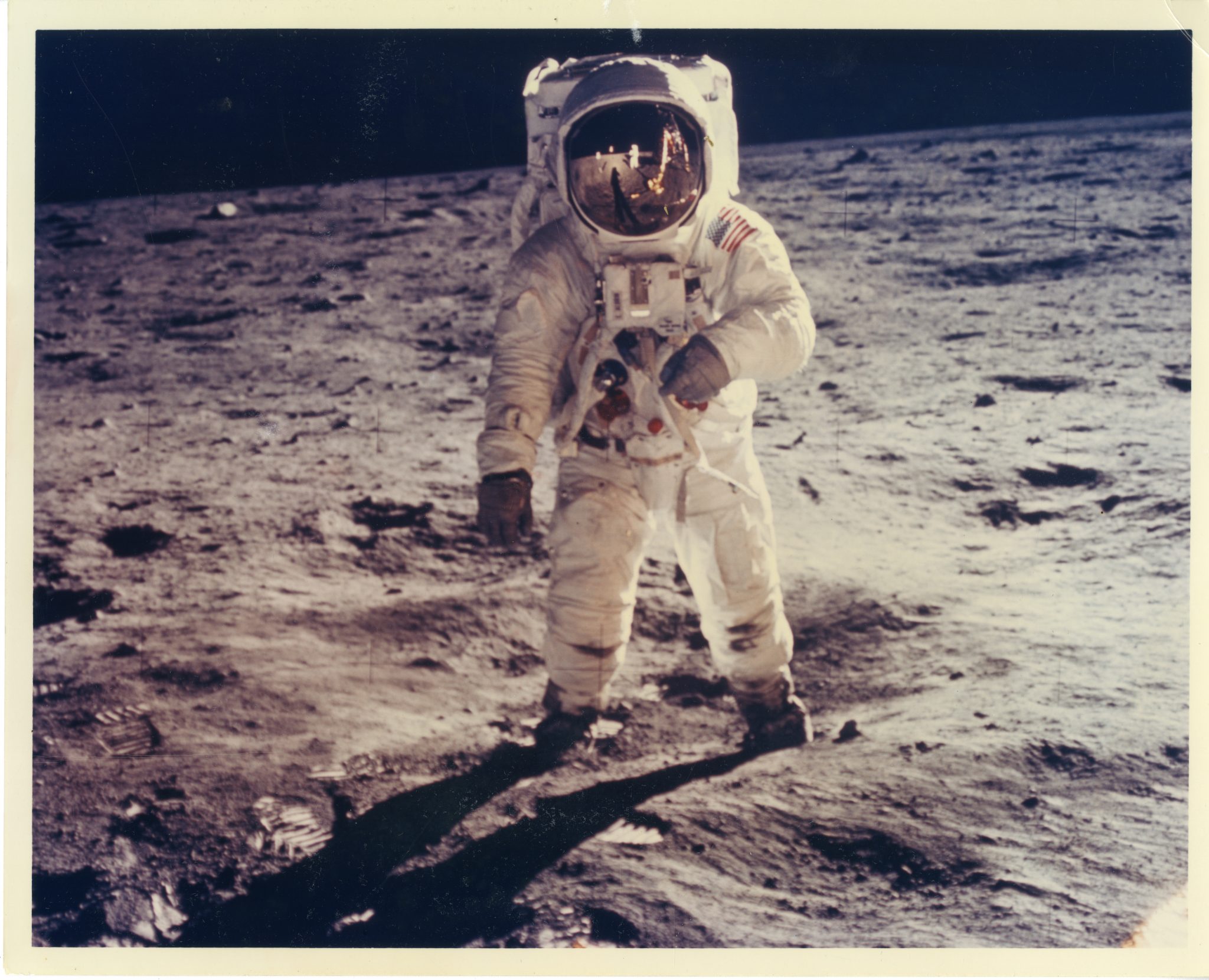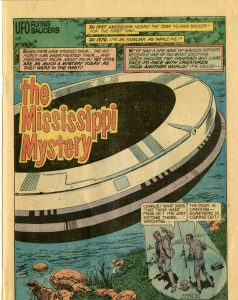
An autographed photograph of Apollo 11 astronaut Buzz Aldrin on the moon is among the items found in ‘Space: Exploring the Final Frontier in the Archives’ exhibition at the university’s J.D. Williams Library. Submitted photo
OXFORD, Miss. – From 18th century astronomy books and hand-drawn pamphlets depicting visions of interstellar travels to rare 78-rpm recordings of songs about actual astronomical phenomena, all this and more is on display at the University of Mississippi‘s Department of Archives and Special Collections.
The exhibit “Space: Exploring the Final Frontier in the Archives,” in the Faulkner Room of the J.D. Williams Library, features 16 cases filled with items covering an array of topics. These include the early history of astronomy at the university, music with space themes, primitive artist Howard Finster’s space visions, documentation of alleged UFO sightings in Pascagoula, popular science fiction novels and memorabilia from the early days of NASA’s space program.
“Special Collections possesses a wide variety of material about space,” said Leigh McWhite, political papers archivist and associate professor in UM Libraries. “Some of the items represent real science, while others are fantastical speculation. Frontiers, such as space, encourage both exploration and imagination.”
One of the cases reflects on the history of the university’s two observatories and its collection of historic scientific equipment. As part of this collection, a sextant is on loan from the University Museum. Also displayed are a handwritten thesis, exams and eyewitness accounts made by Ole Miss students and professors of the comets and meteors.
Modern pieces include documents, photographs and promotional materials from NASA regarding its space shuttle program and the International Space Station. Especially captivating is a case centered on the 1973 UFO sightings in south Mississippi.

The comic book “Mystery in Mississippi” depicts the Pascagoula Abduction, a 1973 event during which two men claimed they were abducted and then returned by alien life forms. Submitted photo
“The Pascagoula abduction occurred when co-workers Charles Hickson and Calvin Parker claimed they were abducted by aliens while fishing near Pascagoula, Mississippi,” McWhite said. “Both men underwent physical examinations and psychological evaluations by officials soon after reporting the event.
“As a result, the sighting and abduction are considered one of the most well-documented of the era.”
Local newspapers, tabloids, comic books and books demonstrate the widespread media coverage and public interest in the event.
Music related to space is another facet of the exhibition.
“We have fragile 78-rpm records of songs written about historic space phenomena,” McWhite said. “One such song is ‘Stars Fell on Alabama,’ a folk phrase which refers to an 1833 meteor shower.
“Another musically focused case holds space fantasies such as the Frank Sinatra version of ‘Fly Me to the Moon,’ which NASA played during the Apollo 10 and 11 missions.”
Other items showcased include letters and signed photographs of NASA astronauts John Glenn, the first American to orbit Earth,and Fred Haise, a Mississippian who flew to the moon aboard Apollo 13. Framed items include photographs, patches and flags that flew on space shuttle missions taken from the collections of U.S. Sens. Trent Lott, Thad Cochran and Roger Wicker.
One case with similar materials is on view on the second floor of the J.D. Williams Library, and another is in the Science Library, housed in the Thad Cochran Research Center. The display in Special Collections will remain up throughout 2020. Several events related to the subject of space are scheduled to coincide with the exhibit.
Special Collections is open to the public 9 a.m.-4 p.m. Mondays through Fridays. For more information, contact Archives and Special Collections at 662-915-1595 or archivesdept@olemiss.edu.